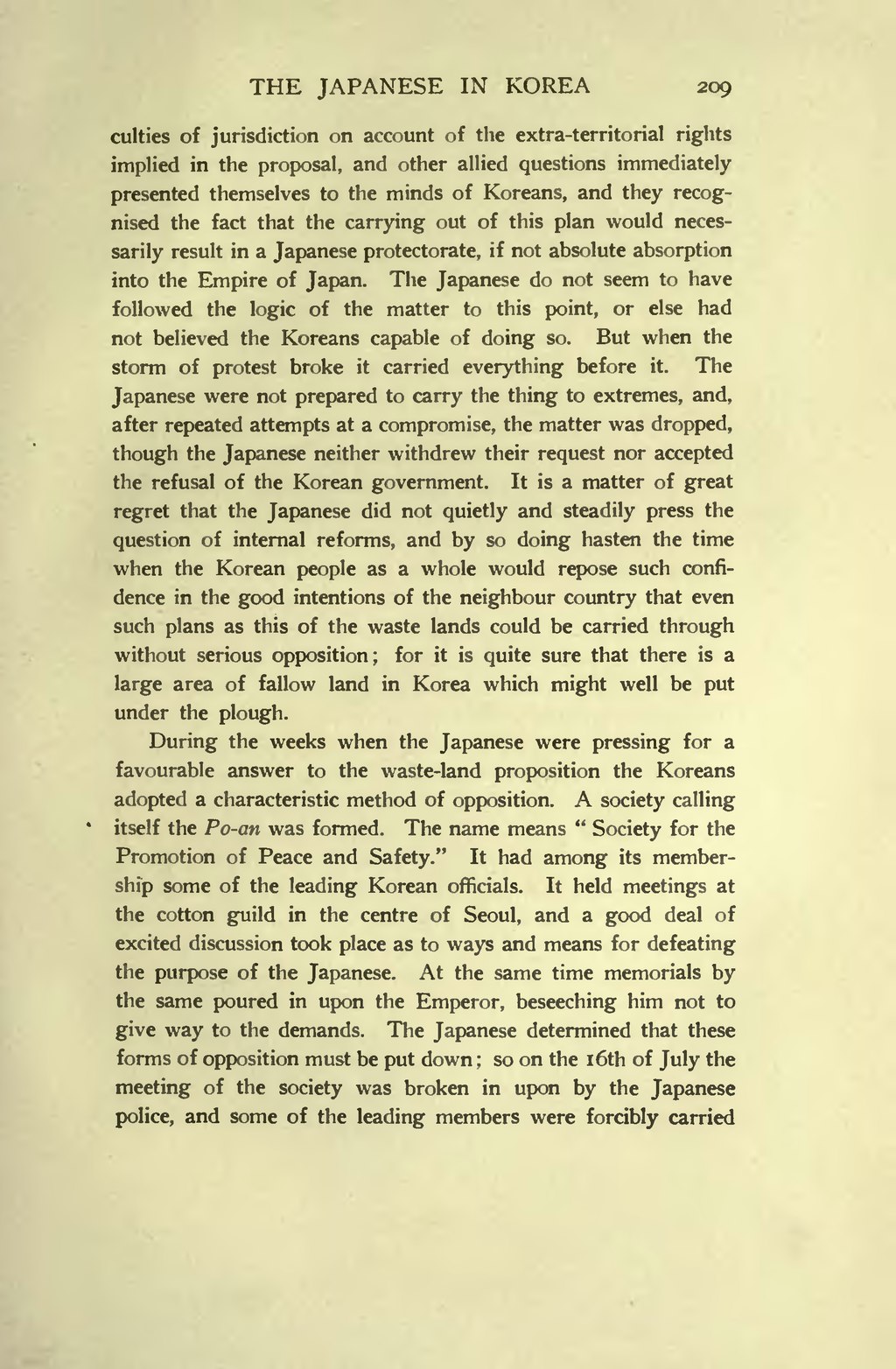culties of jurisdiction on account of the extra-territorial rights implied in the proposal, and other allied questions immediately presented themselves to the minds of Koreans, and they recognised the fact that the carrying out of this plan would necessarily result in a Japanese protectorate, if not absolute absorption into the Empire of Japan. The Japanese do not seem to have followed the logic of the matter to this point, or else had not believed the Koreans capable of doing so. But when the storm of protest broke it carried everything before it. The Japanese were not prepared to carry the thing to extremes, and, after repeated attempts at a compromise, the matter was dropped, though the Japanese neither withdrew their request nor accepted the refusal of the Korean government. It is a matter of great regret that the Japanese did not quietly and steadily press the question of internal reforms, and by so doing hasten the time when the Korean people as a whole would repose such confidence in the good intentions of the neighbour country that even such plans as this of the waste lands could be carried through without serious opposition; for it is quite sure that there is a large area of fallow land in Korea which might well be put under the plough.
During the weeks when the Japanese were pressing for a favourable answer to the waste-land proposition the Koreans adopted a characteristic method of opposition. A society calling itself the Po-an was formed. The name means "Society for the Promotion of Peace and Safety." It had among its membership some of the leading Korean officials. It held meetings at the cotton guild in the centre of Seoul, and a good deal of excited discussion took place as to ways and means for defeating the purpose of the Japanese. At the same time memorials by the same poured in upon the Emperor, beseeching him not to give way to the demands. The Japanese determined that these forms of opposition must be put down; so on the 16th of July the meeting of the society was broken in upon by the Japanese police, and some of the leading members were forcibly carried

